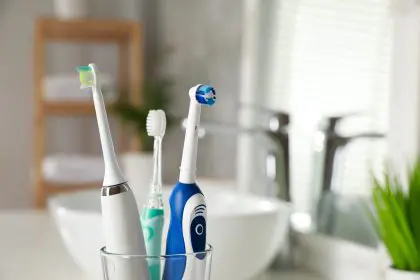Maintaining oral hygiene is crucial for overall health, yet many people underestimate its importance. Brushing and flossing may seem like basic tasks, but their impact on dental health is profound. Without these daily practices, the risk of losing teeth increases significantly. This article explores why brushing and flossing are vital, the consequences of neglecting them, and how to maintain a healthy oral routine.
The importance of brushing and flossing
Brushing and flossing are the foundation of good dental hygiene. Brushing removes plaque, a sticky film of bacteria that forms on teeth and gums. When plaque isn’t removed, it hardens into tartar, which can only be removed by a dentist. Tartar buildup can lead to gum disease, a major cause of tooth loss.
Flossing complements brushing by cleaning the spaces between teeth that a toothbrush can’t reach. These areas are prone to plaque buildup and cavities. Regular flossing helps prevent gum disease and tooth decay, ensuring your teeth remain healthy and strong.
The consequences of neglect
Failing to brush and floss regularly can lead to severe dental issues. Here are some of the key problems:
Gum disease
Gum disease, or periodontal disease, is a leading cause of tooth loss in adults. It begins with gingivitis, an inflammation of the gums caused by plaque buildup. Symptoms include red, swollen, and bleeding gums. If left untreated, gingivitis can progress to periodontitis, a more severe form of gum disease that affects the bones and tissues supporting the teeth. Eventually, teeth may become loose and fall out or need to be extracted.
Cavities and tooth decay
When plaque isn’t removed, it produces acids that attack tooth enamel, leading to cavities. Cavities, or dental caries, can cause significant damage if not treated promptly. Severe decay can penetrate deep into the tooth, reaching the pulp and nerves, causing pain and infection. In extreme cases, the tooth may need to be removed.
Bad breath and stained teeth
Neglecting oral hygiene can result in persistent bad breath, also known as halitosis. This condition is often caused by food particles left in the mouth, which bacteria feed on, producing foul-smelling compounds. Plague and tartar buildup can stain teeth, making them appear yellow or brown.
How to maintain a healthy oral routine
A healthy oral routine involves more than just brushing and flossing. Here are some essential tips to keep your teeth and gums in top condition:
Brush properly
Brush your teeth at least twice a day, ideally after meals. Use a fluoride toothpaste and a soft-bristled toothbrush. Hold the brush at a 45-degree angle to your gums and use gentle circular motions. Ensure you brush all surfaces of your teeth, including the front, back, and chewing surfaces.
Floss daily
Floss at least once daily to remove plaque and food particles between your teeth. Use about 18 inches of floss, winding most of it around your middle fingers and leaving an inch or two to work with. Gently slide the floss between your teeth, curving it around each tooth and moving it up and down to clean the sides.
Use mouthwash
Mouthwash can help reduce plaque and prevent gum disease. Choose an antiseptic mouthwash that kills bacteria and freshens your breath. Rinse with mouthwash after brushing and flossing to enhance your oral hygiene routine.
Regular dental checkups
Visit your dentist regularly for checkups and professional cleanings. Dental professionals can detect early signs of gum disease, cavities, and other issues, providing timely treatment to prevent more serious problems. They can also remove tartar buildup that brushing and flossing alone can’t eliminate.
Healthy diet
A balanced diet plays a crucial role in maintaining dental health. Limit sugary and acidic foods and beverages, as they can contribute to tooth decay. Instead, focus on eating plenty of fruits, vegetables, whole grains, and lean proteins. Foods rich in calcium and vitamin D, such as dairy products and leafy greens, help strengthen teeth and bones.
The connection between oral health and overall health
Poor oral hygiene affects more than just teeth and gums; it can have broader health implications. Studies have shown a link between gum disease and various systemic conditions, including heart disease, diabetes, and respiratory infections. Bacteria from the mouth can enter the bloodstream, contributing to inflammation and potentially affecting other body parts.
Heart disease
Gum disease has been associated with an increased risk of heart disease. The inflammation caused by periodontal disease may contribute to the buildup of arterial plaque, which can lead to heart attacks and strokes. Maintaining good oral hygiene can help reduce this risk.
Diabetes
People with diabetes are more prone to gum disease due to their body’s reduced ability to fight infections. Conversely, severe gum disease can make it more difficult to control blood sugar levels, creating a vicious cycle. Proper brushing and flossing, along with regular dental visits, are essential for managing both oral and overall health in individuals with diabetes.
Respiratory infections
Inhaling bacteria from the mouth can lead to respiratory infections such as pneumonia. This risk is particularly high in older adults and individuals with compromised immune systems. Good oral hygiene can help prevent the spread of harmful bacteria to the lungs.
Conclusion
Brushing and flossing are simple yet vital practices that can prevent tooth loss and ensure long-term dental health. Neglecting these routines can lead to severe consequences, including gum disease, cavities, bad breath, and broader health issues. Maintaining a thorough oral hygiene routine, visiting the dentist regularly, and adopting a healthy diet can protect your teeth and overall well-being. Remember, a healthy smile is a reflection of a healthy body.
This story was created using AI technology.











